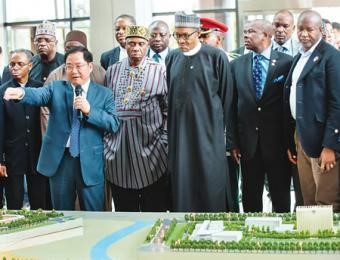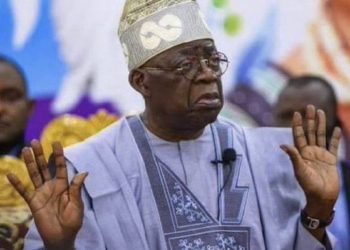Since President Muhammadu Buhari returned to Nigeria from his recent China trip, controversy after controversy has raged in the polity. Even the cacophonies that preceded the trip among the top echelon of the administration signified poor coordination. In particular, the discordance and dissonance in official statements prior to the trip left Nigerians in a quandary regarding the real agenda of the Nigerian delegation, as the public were made to believe that the actual target of the Buhari government was a $2 billion Chinese loan. This conviction was accentuated by the proclamation by the administration that it wanted to source externally, about N1 trillion to cover part of 2016 federal budget deficit, which is projected at about N3 trillion.
The Minister of Information and Culture, Alhaji Lai Mohammed, reinforced the impression that the trip was about a $2 million loan. His position was however a sharp contrast to the views credited to the Special Adviser on Media and Publicity to the President, Mr Femi Adesina, who said the visit had nothing to do with the said loan and that the issue was not raised in Beijing. However, that Nigeria was looking at China for such a loan had long been insisted on by the present administration, going by earlier reports credited to the Minister of Finance, Mrs Kemi Adeosun, that Nigeria was keen on negotiating for a $2.5bn World Bank loan to partly fund the 2016 budget. Incredibly, Adeosun later stated that the government was opting for home-grown solutions to fund the budget deficit.
Another point of contradiction that surrounded the trip was on forex swap. The government declared that there was a swap deal, only for it to reverse itself shortly afterwards. South Africa, United Kingdom, European Union, Russia, Australia and United Arabia Emirate (UAE) have swap deals with China. But it appears that the Nigerian government only acted based on impulse rather than on conviction informed by proper planning, research and understanding of the salient and delicate issues relating to that kind of deal.
Regrettably, government officials have so far failed to admit the tardiness that surrounded the trip and the numerous deals. Rather, the Minister of Foreign Affairs Geoffrey Onyeama, sees the currency deal as Nigeria’s entry into a partnership “that would facilitate China’s drive to internationalise its currency.” He added: “It has given us (our economy) greater opportunity, so that those people (who cannot readily access dollars) can now also import, notwithstanding the shortage of dollars.” But what will this cost the Nigerian economy?
We are familiar with the move to de-dollarize the global economy, as manifested for instance in many advanced economies signing deals with China. Nonetheless, we view the position of the Minister of Foreign Affairs on the China trip as vague and unconvincing, in view of the unfavourable balance of trade between Nigeria and China. About 80 per cent of Nigeria’s import comes from the Asian nation.
Coming at a time when Nigeria’s economy has become comatose, whatever gains from the trip must be a drop in the ocean, when juxtaposed with the reality that Nigeria lacks the capacity to quickly level out the current huge trade imbalance. China has never been known to be a Father Christmas with a fad for benevolence and philanthropy, as national interest takes precedence in international trade, politics and diplomacy. Though Nigeria may have related with China from the position of weakness, we insist that government must assert Nigeria’s rights as a sovereign nation, and be circumspect in relating to ‘friendly’ countries to avoid undermining the integrity and overall economic interest of Nigeria.
The government said it succeeded in signing agreements to the tune of $6 billion investments spanning various sectors of the economy. But given the perennial huge trade imbalance between Nigeria and China, what really does Nigeria stand to gain from the overall deal? Will the new deal further place Nigeria as a dumping ground for Chinese products? If the nation is indeed determined and willing to encourage local production, does it need to import indiscriminately from China?
The government needs to persuade Nigerians that it has been able to evolve a master plan, and that it possesses the capacity to tackle very critical issues in bilateral trade. While it desires the cooperation and support of friendly countries, including China, to give fillip to the comatose economy, the administration should be resolute and uncompromising on issues that border on national interest. There have to be indices on macroeconomics to jump start the economy, and not to support further capital flight that would continuously plunge the country into further trade deficit with China. The Buhari administration must go beyond semantics and stereotypes, as manifested in its statement that “we are talking to china so that it would also be importing some of its items from Nigeria so that the trading balance can be sort of reduced.”















































